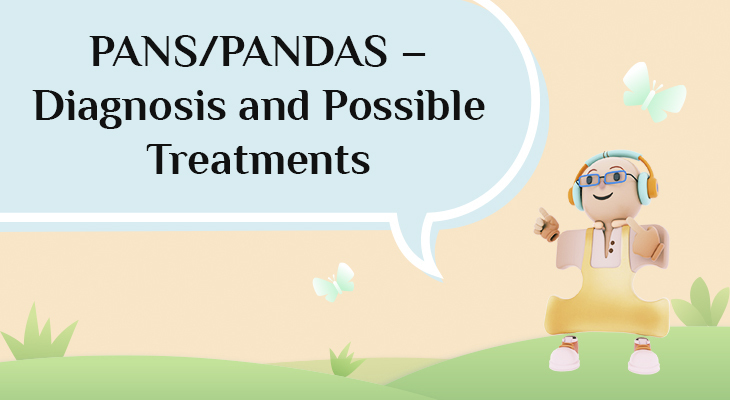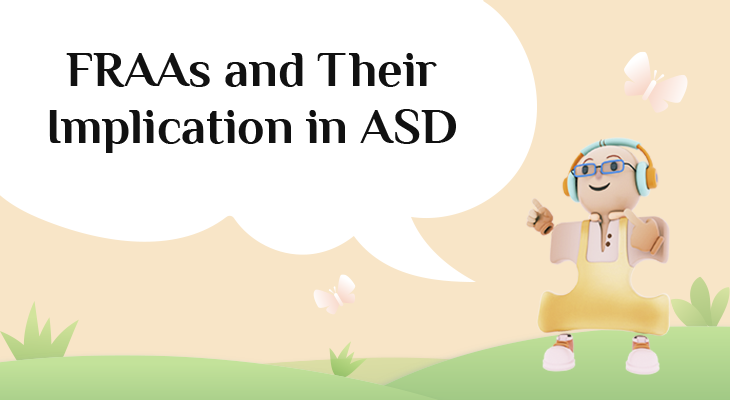
Introduction
A few months ago, we discussed a unique condition that is referred to as PANS/PANDAS. As a reminder:
PANS (Pediatric Acute-onset Neuropsychiatric Syndrome) and PANDAS (Pediatric Autoimmune Neuropsychiatric Disorders Associated with Streptococcal Infections) are a set of pediatric neuropsychiatric disorders. These disorders are characterized by the sudden onset of obsessive-compulsive disorder (OCD) or eating disorders, along with other neuropsychiatric symptoms, such as tics, anxiety, irritability, and emotional lability. Typically, these symptoms emerge at a very young age, usually between 3 to puberty.
The key difference between PANS and PANDAS lies in their trigger factors:
- PANS: This term encompasses cases where the sudden onset of symptoms occurs without a known infectious trigger. While infections can still play a role, they might not always be directly linked to the symptoms.
- PANDAS: In these cases, the onset of symptoms is associated with a streptococcal infection, particularly group A streptococcal infections, such as strep throat. The theory behind PANDAS is that the body’s immune response to the streptococcal infection leads to an autoimmune reaction, where antibodies mistakenly attack certain brain structures, resulting in neuropsychiatric symptoms.
Interestingly, a recent publication examined the role of folate receptor autoantibodies in this population. The paper reviewed the role of FRAT® (Folate Receptor Autoantibody Test) as a supplementary tool in providing a possible marker and aiding in the treatment of PANS/PANDAS with folinic acid. The study revealed a FRAA (Folate receptor autoantibodies) prevalence of 63.8% within the sample population. More importantly, it highlighted a case study of an 18-year-old male with PANS who suffered from severe OCD and anxiety. His symptoms improved significantly after leucovorin was introduced to address a positive binding FRAA. This case was particularly noteworthy, as the patient was initially unable to tolerate antimicrobial treatment—an essential component in PANS management. However, after addressing his central folate metabolism abnormalities, he became more tolerant of antimicrobials, allowing for treatment of the underlying infections contributing to PANS. This is the first documented report linking FRAAs to PANS/PANDAS. These findings suggest that children and adolescents with PANS/PANDAS should be screened using FRAT®, and if positive FRAAs are identified, appropriate treatment should be considered to manage symptoms (mainly the use of folinic acid).
Essentially, folinic acid can be beneficial for children with PANS (Pediatric Acute-Onset Neuropsychiatric Syndrome) and PANDAS (Pediatric Autoimmune Neuropsychiatric Disorders Associated with Streptococcal Infections) by addressing potential folate transport issues in the brain. Here’s how folinic acid may help:
1. Bypassing Folate Receptor Blockade
- In some children with PANS/PANDAS, autoantibodies against the folate receptor alpha (FRα) can block the transport of folate into the brain. This leads to reduced folate levels in the central nervous system, which is important for brain function and development.
- Folinic acid (a form of folate) can bypass the blocked folate receptors more effectively than regular folic acid, helping to increase folate levels in the brain despite the presence of the autoantibodies.
2. Improving Neurological Function
- Folate is crucial for neurotransmitter production, myelin synthesis, and DNA repair. Restoring folate levels with folinic acid can support these processes, improving cognitive function, mood regulation, and reducing neuropsychiatric symptoms such as anxiety, obsessive-compulsive behaviors, or tics.
3. Modulating Immune Function
- Folinic acid has been shown to modulate immune responses, potentially reducing the autoimmune inflammation that is thought to contribute to the neuropsychiatric symptoms in PANS/PANDAS. By supporting immune regulation, folinic acid may reduce the severity of autoimmune attacks on the brain.
4. Supporting Mitochondrial Function
- Folate is also important for mitochondrial energy production. Folinic acid can help improve mitochondrial function in brain cells, which may be impaired in children with PANS/PANDAS, potentially leading to better mental clarity, focus, and energy.
5. Reducing Symptoms of Cerebral Folate Deficiency
- Children with PANS/PANDAS who have cerebral folate deficiency (due to FRα autoantibodies) may exhibit symptoms such as developmental regression, speech issues, irritability, and mood swings. Folinic acid can alleviate these symptoms by ensuring adequate folate levels in the brain.
Of course, further research is needed in the PANS/PANDAS population, but this is a great start! Systematic clinical studies demonstrating leucovorin’s effectiveness in FRAA-positive PANS/PANDAS patients would be valuable in supporting treatment recommendations involving leucovorin in this population. Let’s hope this research continues. It is very promising!



